Premium Only Content

Timaeus Plato
Don't forget to follow my channel for more content.
This video is perfect for putting on when going to bed, driving or while doing things around the house!
By: Plato ~ ΠΛΆΤΩΝ
Translated By: Benjamin Jowett
Full Length Audiobook Video
Timaeus Greek Τίμαιος Timaios, is one of Plato's dialogues, mostly in the form of a long monologue given by the title character Timaeus of Locri, written c. 360 BC. The work puts forward speculation on the nature of the physical world and human beings and is followed by the dialogue Critias.
Participants in the dialogue include Socrates, Timaeus, Hermocrates, and Critias. Some scholars believe that it is not the Critias of the Thirty Tyrants who is appearing in this dialogue, but his grandfather, who is also named Critias. It has been suggested that Timaeus influenced a book about Pythagoras, written by Philolaus.
The dialogue takes place the day after Socrates described his ideal state. In Plato's works such a discussion occurs in the Republic. Socrates feels that his description of the ideal state wasn't sufficient for the purposes of entertainment and that "I would be glad to hear some account of it engaging in transactions with other states".
Hermocrates wishes to oblige Socrates and mentions that Critias knows just the account to do so. Critias proceeds to tell the story of Solon's journey to Egypt where he hears the story of Atlantis, and how Athens used to be an ideal state that subsequently waged war against Atlantis. Critias believes that he is getting ahead of himself, and mentions that Timaeus will tell part of the account from the origin of the universe to man.
Critias also cites the Egyptian priest in Sais about long term factors on the fate of mankind:
"There have been, and will be again, many destructions of mankind arising out of many causes; the greatest have been brought about by the agencies of fire and water, and other lesser ones by innumerable other causes. There is a story that even you [Greeks] have preserved, that once upon a time, Phaethon, the son of Helios, having yoked the steeds in his father's chariot, because he was not able to drive them in the path of his father, burnt up all that was upon the earth, and was himself destroyed by a thunderbolt. Now this has the form of a myth, but really signifies a declination of the bodies moving in the heavens around the earth, and a great conflagration of things upon the earth, which recurs after long intervals.
Summary By: Wikipedia
-
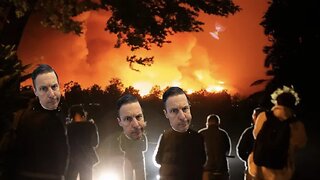 LIVE
LIVE
Jeff Ahern
38 minutes agoMonday Madness with Jeff Ahern( 6am pacific)
185 watching -
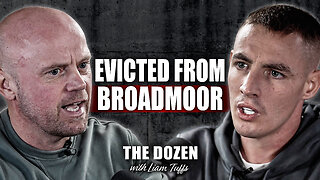 1:22:21
1:22:21
TheDozenPodcast
20 hours agoBroadmoor, bare knuckle, recovery: Ben Hatchett
40.3K1 -
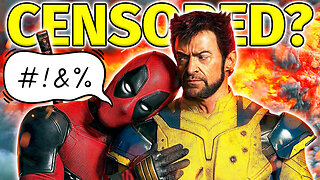 10:58
10:58
Degenerate Jay
22 hours ago $7.19 earnedThe Rejected Deadpool And Wolverine Joke That Was Too Far For Disney
86.2K5 -
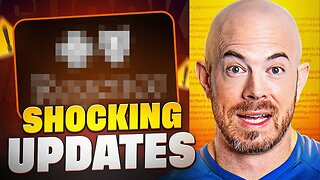 13:00
13:00
Dermatologist Dr. Dustin Portela
15 hours ago $3.38 earnedAnother Insurance Company Harming Patients - Doctor Explains
41K4 -
 52:32
52:32
Survive History
21 hours ago $5.57 earnedCould You Survive in King George's Redcoats During the Jacobite Rising?
34.3K5 -
 17:53
17:53
Fit'n Fire
20 hours ago $2.06 earnedA Rifle for the Family -- BCM MK2 BFH and Gunnr Optics Odin 1-10x28mm LPVO
24K2 -
 1:03:52
1:03:52
GrassRootsWarriorNetwork
1 month agoWe The People Are The News Now While MSM Is On It’s Way Out - YourNews.com with Sam Anthony
22.2K1 -
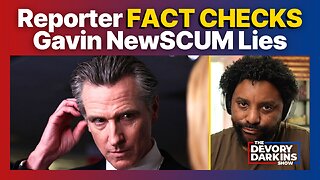 21:12
21:12
DeVory Darkins
15 hours ago $19.45 earnedGavin Newsom gets what he deserves after NBC Reporter FACT CHECKS his Lies
96K68 -
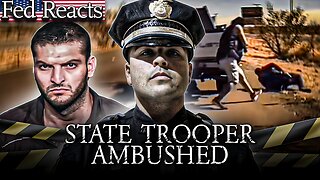 1:57:13
1:57:13
MyronGainesX
15 hours agoFormer Fed Explains Sting That Led To The Murder Of A State Trooper
100K22 -
 3:56:27
3:56:27
Due Dissidence
21 hours agoNewsom ROASTED For Pod Save Interview, Candace Owens CALLS OUT Elon, Ian Carroll RATIOES Israel Post
88.5K67